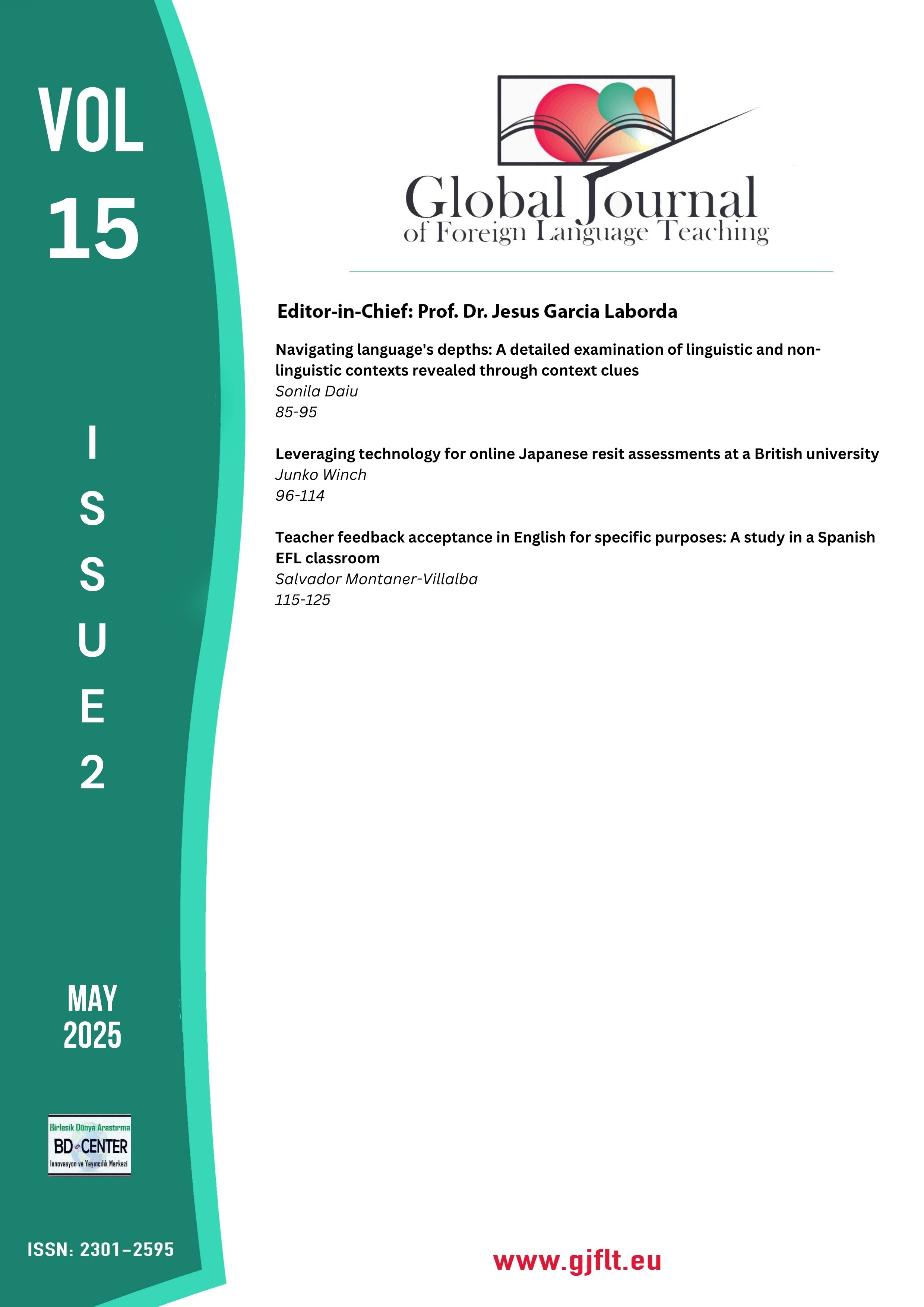Leveraging technology for online Japanese resit assessments at a British university
Main Article Content
Abstract
This study examines the effectiveness of online resit assessments for Japanese language learners, addressing concerns about assessment reliability in digital contexts. Despite the increasing use of online assessments, little research has explored how resit exams compare to initial attempts, particularly in language learning. To bridge this gap, the study analyzed the resit performance of 32 students across two proficiency levels at a British university, using five language marking criteria to assess written and oral tasks from 14 Task Briefs. Findings indicate that while written resit assessments are as challenging as the initial exams, oral resit assessments may be significantly easier. However, the reliability of resit results is questionable due to students’ use of Online Translators (OT) and Input Method Editors (IME), which can generate text that does not reflect students’ actual language proficiency. These findings highlight the need for assessment designs that minimize the influence of external digital tools, ensuring a more accurate evaluation of language skills. The study contributes to discussions on maintaining academic integrity and developing fairer online language assessments.
Keywords: Academic misconduct; higher education; online submission; language assessment; resit
Downloads
Article Details

This work is licensed under a Creative Commons Attribution-NonCommercial-NoDerivatives 4.0 International License.
Authors who publish with this journal agree to the following terms:- Authors retain copyright and grant the journal right of first publication with the work simultaneously licensed under a Creative Commons Attribution License that allows others to share the work with an acknowledgement of the work's authorship and initial publication in this journal.
- Authors are able to enter into separate, additional contractual arrangements for the non-exclusive distribution of the journal's published version of the work (e.g., post it to an institutional repository or publish it in a book), with an acknowledgement of its initial publication in this journal.
- Authors are permitted and encouraged to post their work online (e.g., in institutional repositories or on their website) prior to and during the submission process, as it can lead to productive exchanges, as well as earlier and greater citation of published work (SeeThe Effect of Open Access).
